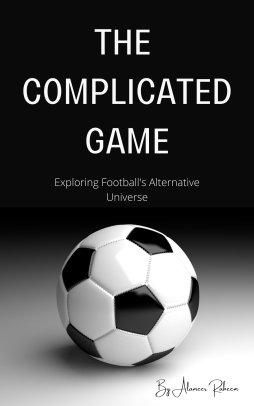
While Arne Slot and Enzo Maresca are the latest disruptors in the Premier League, they are far from the first managers to shake up the status quo. Football history is filled with figures who entered the league as outsiders, introduced revolutionary tactics, and left a lasting impact. But what separates those who endure from those who fade away?
To understand the path ahead for Slot and Maresca, we need to look at those who came before them—managers who walked into the league, rewrote the rules, and either cemented themselves as legends or found their methods obsolete within a few seasons.
Arsène Wenger: The Architect of Modern English Football
Before Wenger arrived in 1996, English football was still rooted in its traditional ways—long balls, physicality, and a preference for raw athleticism over technical precision. Wenger, with his meticulous attention to detail, dietary reforms, and emphasis on ball control, transformed Arsenal and, by extension, the entire Premier League.
His first full season (1997-98) was a masterclass in tactical evolution. Arsenal played a brand of football that had never been seen in England before—fluid, quick passing, and an emphasis on positional intelligence. He won the league and FA Cup double in his first full campaign, proving that his methods weren’t just effective but revolutionary.
The lesson from Wenger? Revolutionary tactics can work—but only if they continue to evolve. His downfall came when he failed to adapt as other teams, most notably Sir Alex Ferguson’s Manchester United and later Jose Mourinho’s Chelsea, figured out how to counteract his style.
José Mourinho: The Original "Special One"
When Mourinho arrived at Chelsea in 2004, he didn’t just bring tactical innovation—he brought an entirely new mentality. His 4-3-3 formation, built around a rock-solid defensive structure and rapid counter-attacks, was a direct response to the more open attacking football of the time.
Mourinho’s Chelsea were ruthless. In his first season, they set a Premier League record for the fewest goals conceded (15) in a 38-game season and won the title with a staggering 95 points. His blueprint wasn’t just about style; it was about efficiency and pragmatism.
Mourinho’s reign proved that innovation doesn’t always have to mean free-flowing football. Sometimes, a manager can revolutionize a league simply by redefining what “winning football” looks like. The problem? His reluctance to change. While his early years were dominant, his later struggles stemmed from his inability to adapt to a league that had moved beyond his rigid defensive systems.
Claudio Ranieri: The Unlikeliest Champion
Leicester City’s 2015-16 title-winning season remains one of the most extraordinary achievements in football history. Ranieri didn’t just pull off a miracle—he did it with a team that was written off before the season even began.
His Leicester side perfected a brutally effective strategy: deep defensive blocks, lightning-fast counter-attacks, and a relentless work ethic. It was football at its simplest yet most devastating. While the rest of the league relied on possession-based systems, Leicester thrived on absorbing pressure and striking with surgical precision.
But the harsh reality of football is that fairy tales rarely have sequels. The following season, Leicester’s magic faded. Opponents studied their methods, found ways to break them down, and Ranieri struggled to reinvent the team. His sacking less than a year after winning the title was a brutal reminder that in football, standing still is the same as moving backward.
What Slot and Maresca Can Learn from These Managers
If there’s one takeaway from these past revolutions, it’s this: No tactical innovation lasts forever. Every manager who has disrupted the league has eventually faced the same reality—their methods only work until the rest of the league adapts.
For Slot, the key will be squad depth and flexibility. His system at Liverpool is heavily dependent on high-energy wingers and full-backs playing an intense, dynamic game. But what happens when injuries hit? Can his team remain just as effective if their main weapons are unavailable? Klopp faced a similar dilemma towards the end of his tenure—his high-intensity football became unsustainable with an aging squad. Slot must find ways to keep his philosophy adaptable.
For Maresca, the challenge will be avoiding predictability. Possession-heavy football, while effective, can become stagnant if teams learn how to disrupt its rhythm. Guardiola faced similar hurdles in his early years at Manchester City but overcame them by constantly tweaking his system. Maresca must be ready to do the same if he wants Chelsea to remain at the top.
The Unforgiving Nature of the Premier League
Unlike other leagues, where dominance can last for years, the Premier League is a constant tactical arms race. Teams don’t just copy successful strategies—they study them, dismantle them, and evolve past them.
This is why even managers like Guardiola and Klopp, despite their immense success, have had to continuously reinvent themselves. Guardiola has adjusted from a possession-based game to incorporating elements of direct play and physicality. Klopp transitioned from heavy metal football to a more controlled, possession-oriented approach in his later years.
Slot and Maresca may have caught the league off guard for now, but the real question is: Can they stay ahead once their tactics are no longer a surprise?
In Conclusion
Football history has shown that tactical revolutions don’t last unless they evolve. Slot and Maresca have introduced fresh ideas that are currently reshaping the Premier League, but their long-term success depends on their ability to adapt.
Will Slot’s aggressive wing play hold up once teams learn to counter it? Can Maresca’s Chelsea maintain dominance once opponents figure out how to disrupt their rhythm? These are the questions that will determine whether they follow in the footsteps of Wenger and Guardiola—or fade away like Ranieri’s Leicester.
For now, they are the disruptors. But in football, being the hunter is easy—it’s staying at the top that is the real challenge.